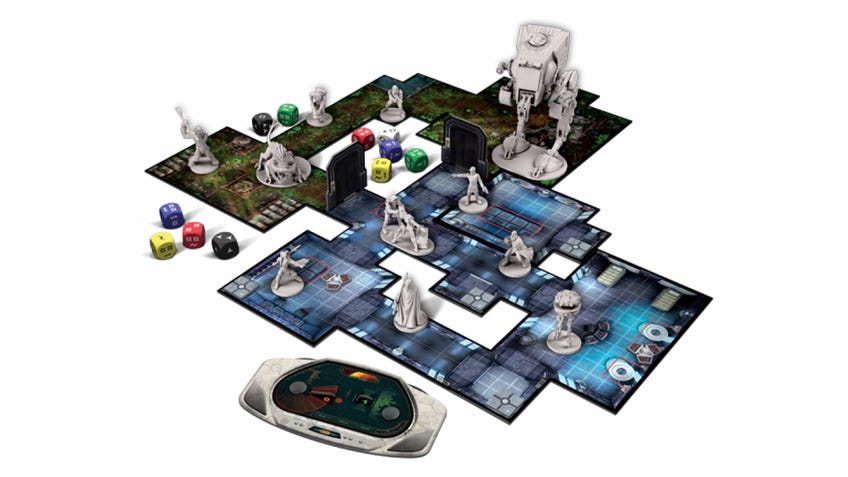“When we release a new game, we want people to take notice”: Fantasy Flight reaffirms pledge to “more thoughtful releases”
Slower, more meaningful games and expansions still the plan, says maker of Arkham Horror, X-Wing and Descent.
Fantasy Flight Games, the publisher of the Arkham Horror series, Descent, living card games, Star Wars: X-Wing and more, has reaffirmed its commitment to a “more thoughtful” approach to releasing new games and expansions on a slower, more meaningful frequency.
In September 2019, then-studio head Andrew Navaro admitted in a Q&A livestream (later published as a blog) that Fantasy Flight had previously adopted a “do as much as we can and ride the horse until it collapses” philosophy, launching as many expansions as possible for each of its successful titles.
While Navaro denied that all of the studio’s games were created with additional releases in mind - responding to accusations that content in base sets was deliberately held back for later expansions - he acknowledged that the “untenable” amount of resource required to support existing titles had resulted in a shift away from developing brand new titles and franchises.
Key among Navaro’s promises “to be very thoughtful about the things that we make” in the future was the pledge to increasingly plan a fixed run of content for games with a “finite existence”, rather than producing endless expansions without a clear idea of when to stop.
“Other games, we’ll be taking a little more of a wait-and-see approach, where we’ll release the core game, and then if it does well, we’ll begin working on expansions,” Navaro added.
In the almost two years since Navaro’s comments, Fantasy Flight has announced the “completion” of additional content for dungeon-crawler Star Wars: Imperial Assault, an extended hiatus for its Lord of the Rings living card game, a slower release cycle for Game of Thrones: The Card Game and the cancellation of collectible dice game Star Wars: Destiny. Most recently, the studio confirmed to Dicebreaker that no more expansions were in the works for hit horror board game Mansions of Madness: Second Edition.

Navaro departed Fantasy Flight in early 2020. Asked whether Fantasy Flight Games’ approach to new games and expansions remained the same in 2021, current product strategy director Jim Cartwright (pictured, main) told Dicebreaker that the studio was still prioritising less frequent, more meaningful releases.
“That is still very much our mentality,” he said. “We absolutely want to be more thoughtful with our releases. The marketplace is constantly evolving; there are more games being released every month than ever before. This is amazing for our industry, for the fans, and for the community as a whole.
“It’s incredibly exciting to see how much our industry has grown over the last decade. Because of that, we want to be more thoughtful with our releases and we want to ensure that they have maximum impact. When we release a new game, we want people to take notice.”
Cartwright said that Fantasy Flight considers the upcoming Descent: Legends of the Dark its flagship release for 2021. The app-powered dungeon-crawler releases on August 6th, almost 10 years after the last major entry in the Descent franchise. Designers Kara Centell-Dunk and Brandon Perdue previously told Dicebreaker that the co-op board game has been in development for almost three years, and was actively designed to provide the “kind of experience we thought wasn’t already out there that people want”.
Among the other “successes” for Fantasy Flight during the last 12 months, according to Cartwright, are living card games Marvel Champions and Arkham Horror: The Card Game, as well as another app-powered adventure game, The Lord of the Rings: Journeys in Middle-earth.
“Internally FFG has reaffirmed the kind of experiences we want to make for our players,” Cartwright said. “One of the big things that our new head of studio, Chris Gerber, is focusing on is a strong R&D process.
“We have some designs that never see the light of day, but the process itself encourages our studio to think critically about design. The games that do eventually become products are much stronger for it.”



